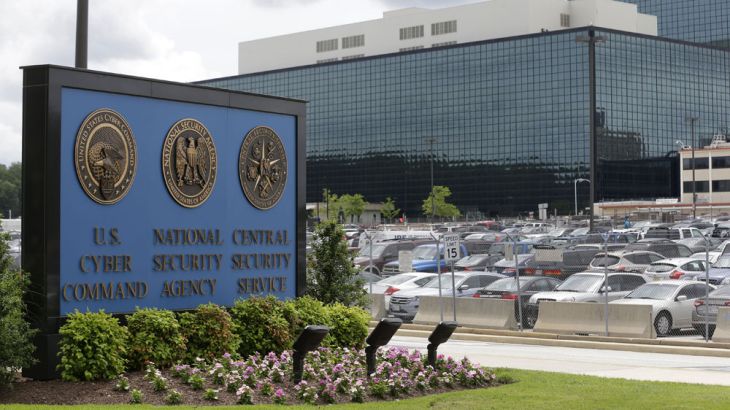
Mass surveillance under the microscope
Two years on from the Snowden leaks, the surveillance debate continues; plus, journalism in Japan – Abe’s ‘medianomics’.
The US Patriot Act is the legislation that enabled the National Security Agency (NSA) to conduct mass surveillance on American citizens – as revealed by one if its former contractors, Edward Snowden, nearly two years ago – and on June 1, 2015 one of the most controversial sections of that act will expire.
It will be up to the US Congress to decide on whether or not to renew the law. If undecided, there is a piece of legislation lying in wait called the USA Freedom Act which will reform the NSA and effectively end aspects of the surveillance programme as we know it.
Keep reading
list of 4 itemsNPR editor resigns after accusing US outlet of liberal bias
Lawmakers brawl as Georgian Parliament considers ‘foreign agent’ bill
Journalist loses foot after being badly wounded in Israeli attack in Gaza
However this debate is not only taking place in Washington. Earlier this month a meeting was held behind closed doors in Britain involving a who is who of tech giants and former intelligence chiefs, all there to discuss the future of surveillance.
Walking us through the surveillance story are: Duncan Campbell, investigative journalist; Sabrina Siddiqui, The Guardian US; Neema Singh, ACLU; Sumit Ganguly, Indiana University; and Robin Simcox, Henry Jackson Society.
Other media stories on our radar this week: Sudanese authorities have confiscated the editions of at least nine newspapers in the country and suspended the licenses of four others; in Iran, the trial of Washington Post journalist, Jason Rezaian who faces charges of espionage has begun and two reporters in Brazil have been found murdered within the space of a week.
Shinzo Abe’s ‘medianomics’
In December 2014 Japanese Prime Minister Shinzo Abe and his Liberal Democratic Party (LDP) won convincingly in a snap election. The victory came despite Shinzo’s economic policies – known as Abenomics – failing to achieve any real success and his plans to restart the country’s nuclear industry still being overshadowed by the Fukushima disaster.
Read the country’s news coverage and you may not be able to tell that the prime minister’s performance in office has been questionable. Japanese journalists tend to be compliant and deferential due to a system of press self-regulation as institutionalised as the kisha clubs – or press clubs – that mediates between the media and the government.
However that culture was recently put to the test. The Listening Post‘s Will Yong reports on journalism in Japan and Shinzo Abe’s ‘medianomics’.
Finally, how many travellers actually watch the inflight safety video when boarding a plane? Delta Airways has come up with a way to mark the 10th anniversary of Youtube and to get seasoned air travellers to tune in to the safety video. The airline’s plan is to use characters from some online memes and viral videos to grab passenger’s attention. “The Internetest safety video on the Internet” is our End Note this week.